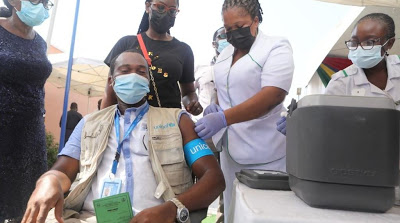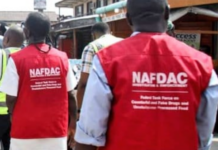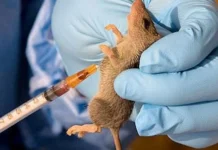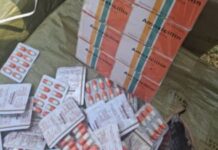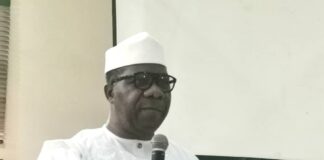Not less than 560,000 Nigerians have received the first dose of the vaccine against the COVID-19 virus in less than a month after the country commenced vaccination of its citizens.
As of Monday evening, 566,917 eligible Nigerians have been vaccinated, according to an update by the National Primary Health Care Development Agency (NPHCDA).
According to the agency, the COVID-19 vaccination has commenced in all states across the country except for Kogi which is yet to receive doses for the vaccines.
Kogi was not supplied with the vaccines because their cold store is still under repairs following vandalisation during the EndSARS protest, the NPHCDA head, Faisal Shuaib, said at a briefing.
But the agency in a tweet on Monday said Mr Shuaib met with Kogi State Governor, Yahaya Bello, to resolve issues around vaccine storage and provision of security at the Cold Store.
In the data published by the agency, Lagos State, the epicentre of the disease in Nigeria, has vaccinated 112,326 people; making it the highest in the country.
This is followed by Ogun with 48,983, Kaduna-40,243, Bauchi- 32,893, Katsina- 32,628, and Kwara- 27,509.
The states with the lowest number of vaccinated people are Abia-95 and Taraba – 413.
Nigeria commenced vaccination of it citizens beginning with healthcare workers after it received 3.94 million doses of the Oxford-AstraZeneca vaccines in early March.
The country recently received another 300,000 doses of the AstraZeneca COVID-19 vaccines from telecom giant, MTN, as part of the telecom giant’s contribution to Africa.
The federal government had announced its plan to vaccinate 109 million people against the COVID-19 virus over a period of two years.
Health authorities said only eligible population from 18 years and above will be vaccinated in different phases.
Although there has been controversy over the safety of the Oxford-AstraZeneca COVID-19 vaccine which prompted some countries to suspend its use, Nigeria has chosen to continue the rollout of the vaccines, saying it is safe for use.
The World Health Organisation and European Medicines Agency (EMA) have also declared the vaccine safe.
The EMA said it would continue to study possible links between very rare blood clots and the vaccine.
No Nigerian has declared any serious side effect from taking the vaccine, Mr Shuaib said.

